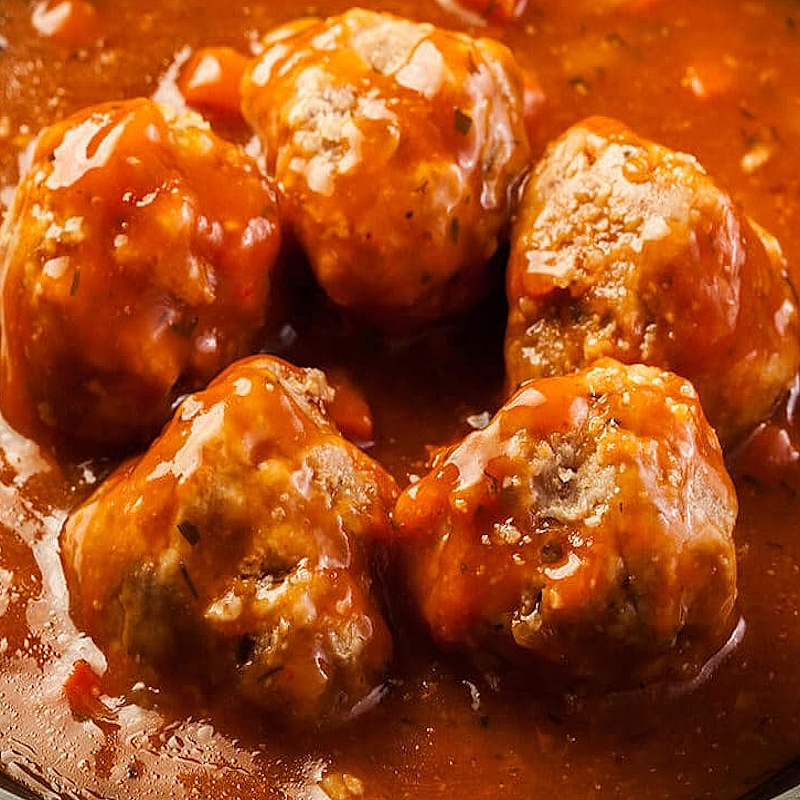The Albóndigas: A Tradition Through the Ages
 Garanties sécurité
Garanties sécurité
(à modifier dans le module "Réassurance")
 Politique de livraison
Politique de livraison
(à modifier dans le module "Réassurance")
 Politique retours
Politique retours
(à modifier dans le module "Réassurance")
The Albóndigas: A Tradition Through the Ages
The albóndigas (from the Latin "botulus," meaning "meatball") are traditional Spanish meatballs. Their origin dates back to Roman times, but it was the Arabs, influenced by the Arabic term "al-bunduqa" (الندقة), meaning "the ball," referring to the round shape of the meatballs, who popularized the dish in Spain.
The Roman albóndigas, as they are known today in Spain, have a fascinating history, influenced first by the Romans and later adapted by the Arabs before being introduced to Spain. The Romans used a mixture of ground meat and spices to prepare meatballs called isicia omentata, and the Arabs enriched this tradition with spices like cumin and cinnamon, leading to the recipes found in modern Spanish cuisine. Below is a recipe inspired by this tradition, reflecting its Roman roots and subsequent Arab and Spanish influences.
Apicius, the famous Roman cook of the 1st century AD, left behind recipes for meatballs. In his work De Re Coquinaria, he describes several dishes using ground meat, which likely resemble modern albóndigas.
In De Re Coquinaria, Apicius offers a recipe called Isicia omentata. This was a type of meatball made from ground beef or pork, spices, and sometimes soaked bread. Although not exactly the same as today's albóndigas, the concept of a meatball is present and can be seen as a precursor to the modern recipe.
Excerpt from Apicius' recipe (Isicia omentata):
- Ground beef or pork
- Bread soaked in wine or broth
- Pepper, cumin, herbs
- Sometimes pine nuts
This type of recipe likely influenced Arab cuisine, which later introduced new spices and preparation techniques to Spain. In conclusion, even though the term "albóndiga" does not come from Apicius, the idea of a meatball (and even the associated spices) appears in ancient Roman recipes, which modern albóndigas may have evolved from.
Roman Albóndigas (Arab-Influenced)
Ingredients for the meatballs:
- 500 g ground meat (pork or beef, or a mix of both)
- 1 slice of white bread, soaked in milk and well-drained
- 1 egg
- 1 onion, finely chopped
- 1 garlic clove, crushed
- 1 tablespoon of fresh parsley, chopped
- 1 teaspoon ground cumin
- 1 teaspoon ground cinnamon
- Salt and pepper to taste
- Breadcrumbs (if needed for consistency)
- Olive oil for frying
Ingredients for the sauce:
- 1 onion, finely chopped
- 2 ripe tomatoes, peeled and crushed
- 1 tablespoon tomato paste
- 1 teaspoon cumin
- 1 teaspoon cinnamon
- 1 tablespoon red wine vinegar or apple cider vinegar
- 1 tablespoon honey (optional, for sweetness)
- 250 ml beef broth or water
- A few bay leaves
- Salt and pepper to taste
- Olive oil for cooking
Preparing the Albóndigas:
- Prepare the meatballs: Mix the ground meat, soaked bread, egg, onion, garlic, parsley, cumin, cinnamon, salt, and pepper in a large bowl. If the mixture is too wet, add a bit of breadcrumbs to help form the meatballs.
- Shape the meatballs: Form medium-sized meatballs (about 30-40 g each).
- Cook the meatballs: Heat olive oil in a large skillet and brown the meatballs on all sides. Once browned, remove them from the skillet and set aside.
Preparing the Sauce:
- In the same skillet, add a bit of olive oil and sauté the onion until translucent.
- Add the crushed tomatoes, tomato paste, cumin, cinnamon, vinegar, and honey (if using). Let it simmer for a few minutes.
- Add the broth or water, bay leaves, and season with salt and pepper. Simmer for 15-20 minutes to allow the flavors to meld.
- Add the meatballs to the sauce and simmer on low heat for 20-30 minutes until the meatballs are fully cooked and have absorbed the flavors of the sauce.
Serving Suggestions:
- Serve the Roman albóndigas with basmati rice or roasted potatoes for a complete meal.
- Pair them with a green salad or vegetable salad to add a fresh touch.
Beverage Pairing:
- Accompany the dish with a light red wine, such as Tempranillo or Garnacha, to complement the Mediterranean experience.
This recipe blends the traditional flavors of Roman albóndigas with the Arab spices that transformed the dish in Spain, offering a rich and aromatic culinary experience.


